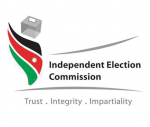You are here
Expected and justified
Mar 31,2015 - Last updated at Mar 31,2015
Saudi Arabia’s reaction to the Houthi mutiny in Yemen was expected, and justified.
The question was: How long will the Gulf Cooperation Council (GCC) and other Arab countries tolerate Iran’s direct interference in Yemen, which has always been an integral part of the Gulf’s national security?
The answer came last week when, after months of audacious Houthi attacks against Yemen’s legitimate government and presidency, Riyadh, along with Arab allies, decided that enough was enough.
Operation “Decisive Storm” came as a direct response to an Iranian-backed Houthi conspiracy against Yemen.
The air campaign is aimed at stopping the Houthi attack of Yemen’s legitimate institutions in its tracks.
For months now, since the Houthi takeover of the Yemeni capital Sanaa, all attempts to find a political solution to the country’s problems were stifled. A sinister alliance between the Houthi movement, a Shiite minority in Yemen, and the deposed former president, Ali Abdullah Saleh, derailed national reconciliation talks headed by elected President Abed Rabbo Mansour Hadi.
Saleh had given up power under a GCC initiative that sought to launch national reconciliation, write a new constitution and bring about democratic elections in Yemen.
The international community backed this initiative and called on all parties in Yemen to partake in the national dialogue aimed at reaching a political settlement to the country’s ailments.
But the Houthi movement, backed by Iran, derailed such talks and took over the capital last September. All attempts to involve it in political talks, overseen by the UN, met a dead end.
Hadi was put under house arrest and his government was sidelined as the Houthis sought to impose their agenda on the Yemeni people.
And when the president managed to escape to Aden, the Houthi-Saleh alliance threatened to overrun the city and subdue tribes loyal to him.
Throughout, Iran was backing this rogue movement both morally and physically.
A Houthi takeover of Yemen would have constituted the biggest geopolitical challenge for Saudi Arabia and the rest of the Gulf countries. Its reverberations would have reached as far as Egypt.
Until the last moment, Riyadh was still hoping for a political solution to the Yemeni crisis. It offered to host national dialogue and pressed the Houthis to opt for a political settlement.
But when Houthi forces moved closer to Aden, King Salman had to make a decision. Two days before the convening of the Arab summit in Sharm El Sheikh, in Egypt, he took the lead in one of the most daring missions the region has ever witnessed.
In response to Hadi’s appeal, the Saudi monarch dispatched his air force to check the Houthi advance. He was quickly joined by five GCC countries, in addition to Egypt, Jordan, Sudan and Morocco.
Operation “Decisive Storm” became the focus of the summit in Egypt.
Standing up to the Houthi insurgency has become a cornerstone of Arab military mobilisation against Iranian intervention and other regional threats.
The summit supported the new mission unequivocally, whose aim is to stop the Houthi-Saleh alliance from delivering Yemen to Iran.
Tehran’s expansion in Iraq and Syria has challenged Arab regimes and irked Saudi Arabia in particular, which is seen as the defender of Sunnis in the region.
Iran’s sectarian policies in Iraq and Syria have a direct correlation to the rise of Islamist extremism in the form of Al Qaeda and Daesh.
Saudi Arabia has managed to shift the regional focus to Iran’s territorial ambitions in Iraq, Syria and Yemen.
The Arab summit has backed a motion to create a joint Arab deterrence force, details of which will become clearer in the coming weeks.
It is important to note that such an Arab unilateral move coincides with American shift in policy in the region. Most Arab countries view with suspicion the US-Iran rapprochement and the possible deal over Tehran’s nuclear programme.
Iran has not shied away from expressing its regional ambitions in Iraq, Syria and Yemen. Recent controversial statements by senior Iranian officials sounded alarm bells in the Arab world.
But the most blatant threat is in Yemen today. The Saudi-led coalition hopes to undermine the Houthi-Saleh alliance and give the legitimate government a chance to reimpose a political solution in Yemen.
This is important because without a political way out, the problems facing Yemen will fester for many years to come.
Iran needs to understand that Arab countries cannot sit idle by as it expands its hegemony over the region.
Its sectarian agenda is abhorrent and is fermenting religious wars the region can do without.
Its meddling in Yemen will have to be stopped.
The writer is a journalist and political commentator based in Amman.













